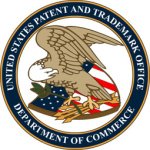- Settore: Legal services
- Number of terms: 3815
- Number of blossaries: 0
- Company Profile:
a statutory basis (Trademark Act Section 2(d), 15 U.S.C. Section 1052(d), TMEP §1207 et seq.) for refusing registration of a trademark or service mark because it is likely to conflict with a mark or marks already registered or pendingbefore the USPTO. After an application is filed, the assigned examining attorney will search the USPTO records to determine if such a conflict exists between the mark in the application and another mark that is registered or pending before the USPTO. The USPTO will not conduct any preliminary searches for conflicting marks before an applicant files an application and cannot provide legal advice on whether a particular mark can be registered.
The principal factors considered by the examining attorney in determining whether there is a likelihood of confusion are: (1) the similarity of the marks; and (2) the commercial relationship between the goods and/or services listed in the application.
To find a conflict, the marks do not have to be identical, and the goods and/or services do not have to be the same. It may be enough that the marks are similar and the goods and/or services related. If a conflict exists between your mark and a registered mark, the examining attorney will refuse registration on the ground of likelihood of confusion. If a conflict exists between your mark and a mark in a pending application that was filed before your application, the examining attorney will notify you of the potential conflict and possibly suspend action on your application. If the earlier-filed application registers, the Examining Attorney will refuse registration of your mark on the ground of likelihood of confusion.
Industry:Legal services
a sworn statement, filed by the owner of a mark registered on the Principal Register, claiming “incontestable” rights in the mark for the goods/services specified. An “incontestable” registration is conclusive evidence of the validity of the registered mark, of the registration of the mark, of the owner’s ownership of the mark and of the owner’s exclusive right to use the mark with the goods/services.
Industry:Legal services
A system used within the USPTO to scan, store and provide access to images of papers associated with trademark registrations.
Industry:Legal services
a written statement from the USPTO notifying an applicant that its mark will be published in the Official Gazette. If the examining attorney assigned to an application raises no objections to registration, or if the applicant overcomes all objections, the examining attorney will approve the mark for publication. The notice of publication provides the date of publication. Any party who believes it may be damaged by registration of the mark has thirty (30) days from the publication date to file either an opposition to registration or a request to extend the time to oppose.
If no opposition is filed or if the opposition is unsuccessful, the application enters the next stage of the registration process. A Certificate of Registration will issue for applications based on use or on a foreign registration under §44, or a Notice of Allowance will issue for intent-to-use applications.
Industry:Legal services
also "TD": a statement filed by an owner under 35 USC § 253 (paragraph 2) and 37 CFR § 1.321(b) or (c) to disclaim or dedicate to the public the entire term or any portion of the term of a patent or patent to be granted. A TD may be filed for the purpose of overcoming a judicailly created double patenting rejection.
Industry:Legal services
an application that has been filed without one or more of the elements required to receive a filing date. The USPTO will return informal applications to applicants. Please see the entry for “application" above for a list of the required elements.
Industry:Legal services
an application which has entered the national phase of the Patent Cooperation Treaty by the fulfillment of certain requirements in a national Office, which is an authority entrusted with the granting of national or regional patents. Such an application is filed under 35 U.S.C. §371 in the United States and is referred to as a "371 application."
Industry:Legal services
an informal development program used for USPTO's OCIO employees that identifies standards to work towards and establishes a mentoring relationship between managers and their employees who must meet these standards.
Industry:Legal services
an intergovernmental organization of the United Nations system. WIPO is responsible for the promotion of the protection of intellectual property throughout the world and for the administration of various multilateral treaties dealing with the legal and administrative aspects of intellectual property.
Industry:Legal services
an Office action inquiring as to the status of the matter that is the basis for suspension of an application. The examining attorney will issue a suspension inquiry letter after an application has been suspended for six months or more, unless the information is available to the examining attorney in the Office’s databases. If the applicant does not respond to the suspension inquiry letter, the application will be abandoned.
Industry:Legal services
